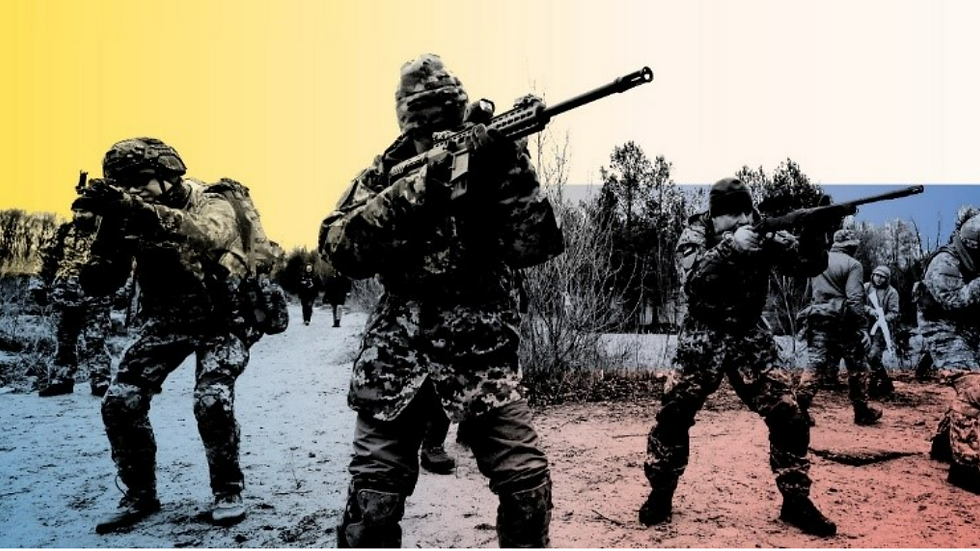The ripple effect a war can cause: has the war between Russia and Ukraine affected Portugal?
- Eva O'Donnell
- Oct 28, 2022
- 3 min read

September 12th marks 200 days since Russia's military invasion of Ukraine on the 24th of February earlier this year. According to the Russian Federation the reasoning behind this invasion was so that Ukraine would be “demilitarized”, which would prevent them from joining NATO.
The ripple effects of this event are devastating. Not only for Ukraine and Russia but also for other countries which relied on Russia and Ukraine for a variety of reasons.
Portugal depended on both countries involved for a substantial amount of their imports, but still were listed as one of the least affected countries alongside Malta. (“Portugal: A First Assessment of the Impact of the War in Ukraine”)
Russia supplied 17% of Portugal’s crude oil, a commodity not produced in Portugal. Due to the war, Portugal cut off all imports and exports of goods between themselves and Russia. This led to a lack of petroleum imports, which resulted in an 11% increase in energy and petrol prices for Portuguese citizens. For some people, paying €2 per litre of gas is simply not possible and this will directly affect their ability to move around and do what any person must do in their daily life. The price of energy had already been affected due to the pandemic, which led to 7% of hospitality businesses and 2% of manufacturing companies closing permanently due to the lack of products being produced. Once these re-opened, the systems had to readjust, which has led to an increase in demand for petrol and oil. The conflict between Russia and Ukraine has worsened this for Portuguese citizens. (“Fuel Prices to Rise Again next Week”)
Ukraine is also responsible for a portion of Portugal’s imports. 35% of Portugal’s vegetable oils and corn importation comes from Ukraine. The importation of these products was not cut off by the Portuguese government. However, due to the time and money which Ukraine’s government has had to spend on the damage the war has and continues to create; considerably less exports have been made to Portugal and other countries besides.
Portugal’s lack of oil is liable to become a deeper concern as winter approaches. Whilst Portugal is one of the warmer European countries, the majority of its buildings are not equipped for the country's colder months. This is why Portugal has a large number of heat pumps throughout the country with the most recently recorded number being 2000 heat pumps in use in 2020. The majority of these heating systems are powered by electricity which is generated by fossil fuels which Portugal now has limited access to. Therefore, unless Portugal is able to source crude oil from other countries soon, heating prices will be increased. This will obviously cause many people to struggle to heat their homes sufficiently, which will cause a significant increase in sickness this winter.
Overall, even though Portugal has been considered one of the lesser affected countries in terms of the war between Russia and Ukraine, this conflict has still had a significant impact on Portugal’s economy. This has been evidenced by the outcome that Portugal has experienced in terms of their imports from both countries involved and implied consequences they are likely to experience in the coming months. This lack of goods not only affects Portugal’s economy, but also the well-being of Portuguese residents.
This topic suggests another reason why humans should move towards greener and more renewable energy source, based on the fact that the limits which come with choosing the “easy option” of fossil fuels such as petrol and oil is not a long-term solution.
__________________________________________________________________________________
Bibliography:
“Portugal: A First Assessment of the Impact of the War in Ukraine.” CaixaBank Research, 13 Apr. 2022, www.caixabankresearch.com/en/economics-markets/activity-growth/portugal-first-assessment-impact-war-ukraine.
“Portugal Could Hold an Answer for a Europe Captive to Russian Gas.” The New York Times, 2022, www.nytimes.com/2022/09/01/business/economy/portugal-russia-natural-gas.html.
“Figure 2- Diagram of Portugal's Imports:
CaixaBank Research, 13 Apr. 2022, www.caixabankresearch.com/en/economics-markets/activity-growth/portugal-first-assessment-impact-war-ukraine.
“Fuel Prices on the Rise Again.” Theportugalnews.com, 14 Oct. 2022, www.theportugalnews.com/news/2022-10-14/fuels-prices-on-the-rise-again/71208.





Comments